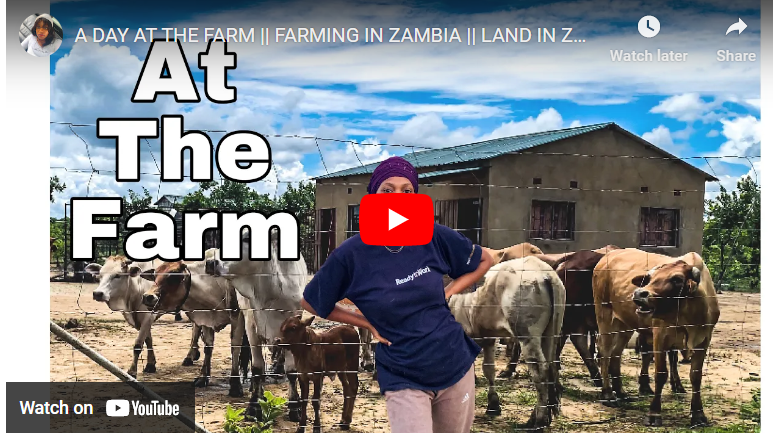In the vast and fertile lands of Tanzania, a breed of entrepreneurs has soared to incredible heights, transforming the poultry farming industry into a realm of unimaginable wealth.
Meet the titans of Tanzania’s poultry empire, the richest poultry farmers who have conquered the skies of success with their feathered companions.
Through unwavering dedication, innovative techniques, and a deep understanding of the market, these visionary farmers have hatched fortunes beyond imagination.
From sprawling farms teeming with thousands of clucking chickens to cutting-edge hatcheries and state-of-the-art processing facilities, their poultry empires stand as a testament to their unwavering commitment to excellence.
Get ready to explore the captivating stories of these trailblazing poultry magnates and discover the secrets behind their astounding success.
Richest Poultry Farmers in Tanzania
Poultry farming is a widely practiced agricultural activity in Tanzania, driven by the country’s growing demand for chicken meat.
Beyond being a staple in the Tanzanian diet, chicken meat is renowned for its rich nutritional value, boasting high levels of protein, essential fats, minerals, and vitamins.
In this exploration, we delve into the world of Tanzania’s poultry farmers, where innovation and dedication combine to meet the nation’s appetite for quality poultry products.
Read Also: Top 5 Richest Poultry Farmers in Zimbabwe
#1. Greyson Kahise
Greyson Kahise, a trailblazer in Tanzania’s poultry farming industry. Recognizing the struggles faced by many farmers and the untapped potential of the sector, Kahise, armed with his education in Animal Science, embarked on a mission to revolutionize poultry farming.
Through his book on commercial poultry farming practices, he provides invaluable guidance to fellow farmers, emphasizing the importance of proper animal husbandry.
Starting with a modest poultry project, Kahise has grown his enterprise, establishing a trading company and an online platform for training farmers.
Read Also: Top 10 Richest Pig Farmers in Africa
His dedication has paid off, with thriving sales of eggs, book, and training programs, transforming the lives of thousands of farmers.
#2. Elizabeth Christopher Swai
Elizabeth Christopher Swai is a remarkable figure in Tanzania’s poultry industry.
Having started her entrepreneurial journey at a young age, she eventually retired from a successful career with UN agencies to pursue her passion for business.
Founding AKM Glitters Company Limited, Swai built a multi-billion organic poultry business that spans breeder farms, a hatchery, and a feed mill.
Her company, registered at the Tanzania Investment Centre, is the largest in East Africa and the sole producer of authenticated Kuroiler chicks in Tanzania.
Read Also: Top 5 Richest Farmers in Zimbabwe
With a commitment to structuring the poultry industry and creating employment opportunities, Swai’s efforts have garnered international recognition and contributed to the country’s economy.
#3. Mary Maximambali
Mary Maximambali, a director of Mkuza farm, is a prominent figure in Tanzania’s poultry industry. Located in the Pwani region, east of Dar es Salaam, Mkuza farm is a family hatchery business that has been operating for over two decades.
With a hatchery capacity of three-million-day-old chicks (DoC) per year, the farm primarily supplies day-old broiler and layer chicks, eggs, and chicken meat across Tanzania.
Mary Maximambali started the business with her late husband, who unfortunately passed away during the early stages of the company’s operations.
Read Also: Top 13 Richest Farmers in USA
Today, she runs the business alongside one of her sons. Mary acknowledges the increasing demand for day-old chicks in Tanzania due to the country’s rapid population growth.
The rising population has led to a higher demand for protein-rich foods like chicken and eggs, particularly broilers.
Mkuza farm has created a network of poultry farmers who procure their day-old chicks from diverse distribution centers.
However, one of the major challenges faced by these farmers is poultry diseases, many of which are preventable through vaccination.
Read Also: Top 5 Richest Farmers in UK
Previously, Mkuza did not vaccinate the chicks at the hatchery, and buyers had to manage the vaccinations themselves.
This posed difficulties for small-scale farmers, as improper vaccination timing and execution could lead to diseases that negatively impact their investments.
To address this challenge, Mkuza farm has partnered with PREVENT (PRomoting and Enabling Vaccination Efficiently, Now and Tomorrow), an initiative by GALVmed and Ceva Santé Animale. PREVENT aims to initiate vaccinations at the hatchery point under the guidance of qualified veterinary officers.
Read Also: Richest Farmers in England
By vaccinating the day-old chicks against major infectious poultry diseases, Mkuza seeks to provide added value to their products and attract a larger customer base.
PREVENT has equipped the hatchery with the necessary vaccination equipment and will improve vaccination rooms for partner hatcheries.
Mary Maximambali’s leadership and commitment to quality and disease prevention in the poultry industry have played a crucial role in Mkuza farm’s success and its ability to meet the growing demand for poultry products in Tanzania.
Read Also: Top 5 Richest Farmers in the Philippines
Farming Systems Used by these Richest Farmers
The richest poultry farmers in Tanzania employ various farming systems and techniques to maximize their productivity and profitability.
These systems often incorporate modern technologies and best practices. Some of the farming systems commonly used by successful farmers include:
- Intensive Poultry Farming: Many of the wealthiest poultry farmers in Tanzania adopt intensive farming methods, housing their chickens in controlled environments such as poultry houses or sheds. These systems provide optimal conditions for the birds, including temperature control, ventilation, and proper lighting. Intensive poultry farming allows for efficient production and management, leading to higher yields and increased profitability.
- Integrated Farming: Some successful farmers in Tanzania practice integrated farming, where multiple agricultural activities are combined synergistically. For instance, poultry farming may be integrated with crop farming, where the chicken manure is used as organic fertilizer for crop production. This integrated approach helps in minimizing waste, maximizing resource utilization, and diversifying income streams.
- Improved Breeds and Genetics: The richest poultry farmers often prioritize the use of improved poultry breeds and genetics. These breeds are carefully selected for their high productivity, disease resistance, and other desirable traits. By utilizing genetically superior birds, farmers can achieve better growth rates, higher egg production, and improved meat quality.
- Feed Formulation and Nutrition: Successful poultry farmers in Tanzania pay significant attention to feed formulation and nutrition. They aim to provide a well-balanced diet that meets the specific nutritional requirements of their birds. This involves utilizing quality feed ingredients, optimizing nutrient composition, and employing feeding strategies that promote efficient growth and production.
Successful Strategies of the Richest Farmers in Tanzania
The richest poultry farmers in Tanzania employ several strategies that contribute to their success in the industry. These strategies include:
- Business Planning and Management: Successful farmers prioritize strategic planning and effective management of their poultry operations. They develop comprehensive business plans, set clear goals, and implement sound management practices. This includes monitoring financial performance, optimizing production processes, and ensuring efficient resource allocation.
- Market Research and Diversification: The wealthiest farmers conduct market research to identify demand trends, consumer preferences, and potential market opportunities. They adapt their production and marketing strategies accordingly, ensuring that their products meet market demands. Additionally, they often diversify their product offerings to cater to different market segments, which helps in reducing risk and maximizing revenue.
- Quality Control and Biosecurity Measures: Top farmers emphasize strict quality control measures to ensure the production of high-quality poultry products. They implement biosecurity protocols to prevent disease outbreaks and maintain a healthy flock. This includes regular vaccination, proper sanitation, and strict hygiene practices.
Factors that Contribute to Farming Success in Tanzania
- Access to Resources: Successful poultry farmers in Tanzania have access to essential resources such as land, capital, water, and quality inputs like feed, vaccines, and equipment. Adequate resources enable farmers to establish and expand their operations, leading to increased productivity and profitability.
- Knowledge and Skills: Possessing knowledge and skills related to poultry farming is crucial for success. Understanding modern farming techniques, animal health management, breeding, nutrition, and market dynamics empowers farmers to make informed decisions and effectively manage their operations. Continuous learning and staying updated with industry trends are essential for long-term success.
- Market Awareness: Successful poultry farmers in Tanzania have a good understanding of market demand and consumer preferences. They conduct market research, identify potential customers, and adapt their production to meet market requirements. Being responsive to market trends allows farmers to maximize their profits and maintain a competitive edge.
- Proper Management Practices: Implementing sound management practices is vital for success. This includes efficient record-keeping, monitoring flock health, maintaining biosecurity measures, optimizing feed management, and ensuring proper waste management. Good management practices contribute to improved production efficiency, disease prevention, and cost control.
- Networking and Collaboration: Building a strong network and collaborating with industry stakeholders can contribute to success. This includes connecting with fellow farmers, agricultural associations, suppliers, buyers, and government agencies. Networking provides opportunities for knowledge sharing, accessing market information, securing partnerships, and addressing common challenges collectively.
Challenges of Farming in Tanzania
- Limited Access to Capital: Access to affordable financing remains a significant challenge for many farmers in Tanzania. Insufficient capital hinders investments in infrastructure, technology, inputs, and expansion, limiting the growth potential of poultry farming enterprises.
- Inadequate Infrastructure: Poor infrastructure, such as unreliable transportation networks and inadequate storage facilities, can pose challenges for farmers in getting their products to market. Lack of access to electricity and water supply also affects farm operations, especially in rural areas.
- Disease Outbreaks: Poultry diseases, such as Newcastle disease and avian influenza, can cause significant losses for farmers. Limited access to vaccines, veterinary services, and diagnostic facilities exacerbates the risk of disease outbreaks. Disease control and prevention measures are essential for sustainable poultry farming.
- Market Volatility: Poultry farmers face market volatility, including fluctuations in feed prices, competition, and consumer demand. Price fluctuations can impact profitability, and farmers must adapt to changing market conditions and consumer preferences to maintain their competitiveness.
Lucrativeness of Farming in Tanzania
Poultry farming in Tanzania can be lucrative due to several factors:
- Growing Domestic Demand: Tanzania’s population is expanding rapidly, leading to increased demand for poultry products, particularly chicken and eggs. Rising income levels, urbanization, and changing dietary preferences contribute to the growth in demand for protein-rich foods, creating opportunities for poultry farmers.
- Favorable Climate and Environment: Tanzania’s diverse climate and natural resources provide favorable conditions for poultry farming. The country has suitable areas for raising poultry and access to a variety of feed ingredients, including grains and protein sources.
- Government Support: The Tanzanian government recognizes the importance of agriculture, including poultry farming, and has implemented various initiatives to support the sector. This includes providing access to finance, agricultural extension services, and promoting investments in agriculture infrastructure.
- Export Potential: Tanzania has the potential to export poultry products to neighboring countries and beyond. By meeting international quality standards and complying with export regulations, farmers can tap into regional and global markets, expanding their customer base and increasing profitability.
How to make Millions from Poultry Farming
Making millions from poultry farming requires careful planning, diligent execution, and a combination of various strategies.
While there are no guarantees, here are some key steps and factors to consider:
- Business Plan: Develop a comprehensive business plan that outlines your goals, financial projections, marketing strategies, and operational details. This will act as your guide and assist you in making well-informed decisions.
- Market Research: Conduct thorough market research to identify the demand for poultry products in your target market. Understand consumer preferences, competition, and pricing dynamics. Tailor your production to meet market needs.
- Select the Right Poultry Type: Choose the poultry type that aligns with your market demand and resources. This can include broilers (meat production), layers (egg production), or a combination of both. Select high-quality breeds that are suitable for your climate and market preferences.
- Quality Breeding Stock: Start with healthy, high-quality breeding stock. Ensure proper selection, vaccination, and biosecurity measures to prevent disease outbreaks and maintain the genetic potential of your flock.
- Infrastructure and Equipment: Build or invest in appropriate infrastructure and equipment for housing, feeding, and watering your birds. Ensure proper ventilation, lighting, and temperature control to optimize bird health and productivity.
- Feed Management: Develop a cost-effective and nutritionally balanced feed formulation. Optimize feed conversion efficiency and minimize wastage. Explore local feed ingredients to reduce costs, but ensure their quality and nutritional value.
- Disease Control and Biosecurity: Implement robust biosecurity measures to prevent disease outbreaks. Vaccinate your birds, maintain proper hygiene, and monitor flock health regularly. Work closely with veterinary professionals for disease prevention and timely interventions.
- Efficient Production Practices: Implement efficient production practices to maximize productivity and minimize costs. This includes proper flock management, optimized stocking density, effective waste management, and timely culling of non-performing birds.
- Marketing and Distribution: Develop a marketing strategy to effectively promote your poultry products. Establish partnerships with local markets, supermarkets, restaurants, and wholesalers. Explore online platforms and direct sales channels to reach a wider customer base.
- Financial Management: Maintain accurate financial records and monitor key performance indicators. Continuously evaluate and optimize your production costs, pricing strategies, and revenue streams. Seek opportunities for cost savings and revenue diversification.
- Scaling and Expansion: As your business grows, consider scaling up your operations through expansion or vertical integration. This can include increasing flock size, adding value-added products, or expanding into related areas such as poultry processing or animal feed production.
- Continuous Learning and Improvement: Stay updated with industry trends, technological advancements, and best practices in poultry farming. Attend training programs, join farming associations, and network with other farmers to exchange knowledge and experiences.
It’s important to note that making millions in poultry farming requires perseverance, patience, and a long-term perspective.
It may take several years to achieve substantial profits, and success depends on various factors such as market conditions, operational efficiency, and effective management.
Conclusion
As we conclude our journey through the world of Tanzania’s richest poultry farmers, we are left in awe of their remarkable achievements. These visionary individuals have not only transformed the poultry industry but also paved the way for a new era of prosperity and innovation. Their stories inspire us to dream big and reach for the sky, knowing that with determination and passion, success knows no bounds.



